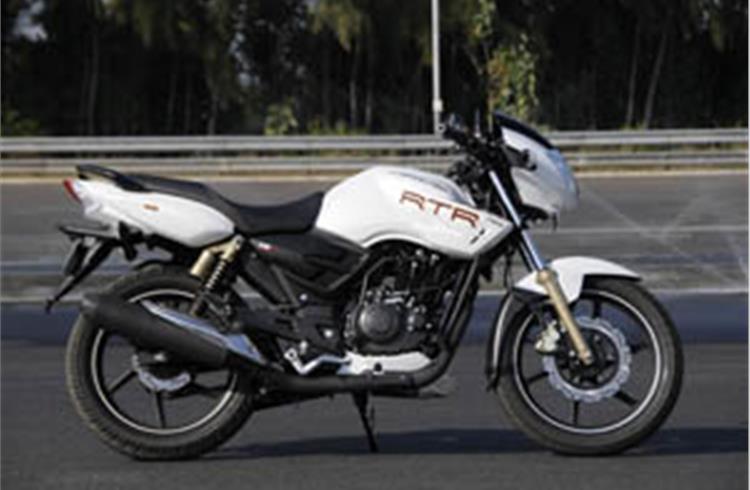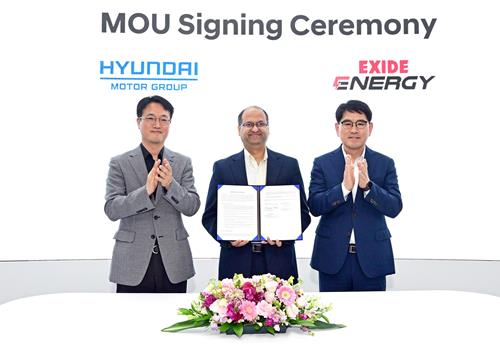Gabriel eyes European two-wheeler market
Gabriel India plans to grow its exports by targeting European two-wheeler makers for its ride control products through its East European dealerships,
Managing director Arvind Walia told Autocar Professional that the company will enter both the OE and aftermarket segment in two-wheelers. "India is the centre of gravity for the production of two-wheelers and has the necessary wherewithal for it. Hence, it will be a good business proposition supplying two-wheeler components to the entire world," Walia elaborated. But he cautioned that regulatory, proprietary and trademark issues would have to be studied carefully before the sector is targeted successfully. Walia also said the company will provide shock absorbers for Mahindra & Mahindra’s global SUV. It currently caters to the requirements of the Renault Logan in Iran and hopes to commence supplies for the Logan in Brazil.
Meanwhile, Walia is of the view that car buyers in Europe are a discerning lot, and hence it is easier to crack the aftermarket than the OE segment in the continent though Gabriel supplies its ride control products like shock absorbers and struts front forks for East Europe indirectly through the Maruti A-star, which is exported as the Alto in Europe.
Europe on call
Gabriel India will leverage the handful of dealerships in East Europe to distribute its ride control products for the two-wheeler aftermarket. It has also begun talks with OE manufacturers of two-wheelers in Europe and expects product development and validation processes to take another seven months or so before supplies take off.
Gabriel India currently taps the commercial vehicle segment in the US indirectly through supplies to Meritor and also supplies hydraulics for Yamaha motorcycles in Japan. In Sri Lanka and Bangladesh, it is an active player in the aftermarket. Walia says there are opportunities in the small car segment globally as India grows its base as a low cost country from where products can be sourced at lower prices.
"Discussions are underway with many customers who are targeting part supplies from India. It is just a matter of time before big orders flow in," he elaborated.
Increasing capacity
Meanwhile, the company has been upping its ante in terms of capacity expansion at its plants to keep pace with the expansions underway at the OE level in India. It had announced a Rs 300 crore expansion for increasing capacity at its Gurgaon and Hosur plants, logistics, R&D, and quality systems over the next couple of years.
Last fiscal, Rs 60 crore was spent on expansion and Walia has indicated that a similar amount will be invested during FY ’12, with the company targeting a 15 to 20 percent growth during the year. Gabriel posted a 20 to 25 percent growth during the last three-quarters of FY ’11.
The company’s Khandsa facility at Gurgaon caters primarily to Maruti Suzuki and plans to grow along with the carmaker's rising volumes. It currently provides about 2.75 to three million ride control products annually to the carmaker from the plant and this figure is expected to grow up by the year end.
The Hosur plant focuses primarily on supplies of shock absorbers to major two-wheeler majors like TVS and Yamaha with current capacity ranging around 3.4 million units. The capacity is likely to be stepped up to five million units per annum during this fiscal.
Gabriel, which has six plants in India, has also initiated many eco-friendly manufacturing processes at its Gurgaon plant like the German chrome plating concept that it is emulating at its Chakan plant as well. The technology was acquired from German company, Auto Tech and involves zero discharge, zero defects in shock absorbers and zero set-up.
Water-based paints have also been introduced at Khandsa which, though expensive, are environment friendly and prevent rusting in products. Acquired from Henkel, these paints are blended in India and enable 99.5 percent coverage of paint as well as longevity of product life by three times.
The process has recently been implemented at the company's Chakan plant. The Parwanoo plant is next in the pipeline, with chrome plating to follow at the Hosur facility by 2012-13.
RELATED ARTICLES
IIT Bombay inaugurates Arun Firodia Research Floor
IIT Bombay, one of India’s top technical and research institutions, honours Kinetic Group chairman Dr Arun Firodia, one ...
Maruti Suzuki expands capacity at Manesar plant by additional 100,000 units
New assembly line at Plant A expands total manufacturing capacity at the Manesar plants to 900,000 units per annum. Alon...
Hyundai and Kia partner Exide Energy to produce LFP batteries in India
Partnership with Exide Energy enables Hyundai Motor and Kia to equip future EVs in the Indian market with locally produc...





 By Autocar Pro News Desk
By Autocar Pro News Desk
 02 May 2011
02 May 2011
 5787 Views
5787 Views









